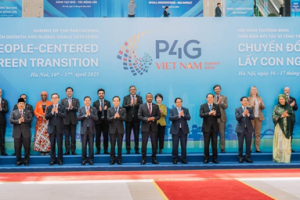
Prime Minister Abiy Ahmed’s administration has embarked on a comprehensive reform agenda aimed at transforming Ethiopia’s economy. This ambitious plan centres on key pillars: the privatization of state-owned enterprises, the liberalization of markets, and a concerted effort to enhance the overall business environment.
These reforms are designed to attract foreign investment, stimulate economic growth, and ultimately, improve the lives of Ethiopian citizens.
A significant milestone in this process has been the opening of the telecommunications sector. By awarding licenses to foreign operators, the government anticipates a substantial influx of capital and a marked improvement in national connectivity.
This move signals a clear commitment to fostering a competitive market and leveraging global expertise for domestic development. However, experts underscore that sustained progress hinges on the continued implementation of structural reforms. These include critical infrastructure development, strengthening the financial sector, and streamlining bureaucratic processes to enhance the ease of doing business. Furthermore, addressing governance challenges and ensuring a stable political landscape are paramount to building investor confidence and attracting long-term, sustainable investment.
The impact of these reforms is already being observed across various sectors, signalling a promising trajectory for the Ethiopian economy. The government believes that these changes will create a more attractive environment for both domestic and international investors.
In a recent interview with the Ethiopian News Agency (ENA), Foreign Affairs Spokesperson Ambassador Nebiat Getachew articulated Ethiopia’s strategic approach to these reforms, emphasizing their alignment with both national interests and continental solidarity. “Ethiopia’s determined pursuit of economic reforms is firmly rooted in the nation’s core interests and its enduring commitment to the African continent,” he stated.
Ambassador Nebiat highlighted Ethiopia’s calculated engagement with global blocs, including its recent accession to BRICS. He clarified that all diplomatic actions, whether bilateral or multilateral, are driven by the desire to secure national advancement while fostering continental solidarity.
“Ethiopia’s diplomatic engagement, be it bilateral or multilateral, emanates from its desire to ensure its national interest,” he reiterated. “The driving factor in deciding to join economic blocs or political alliances or bilateral engagements, like the BRICS the emerging economic bloc with multiple advantages is national interest.”
He further emphasized that Ethiopia’s engagement with one alliance does not preclude its participation in others. “When Ethiopia joins such alliances, it doesn’t necessarily mean that it negates or rejects any other alliances or economic associations. The very fact, the very reason that Ethiopia joins this bloc or that bloc is mainly driven by its national interest,” he explained.
Recognizing the pivotal role of foreign investment in driving economic growth, Ambassador Nebiat underscored the importance of active economic diplomacy. “Economic diplomacy has become at the forefront of the Ethiopian foreign policy in terms of bringing investors, business people to Ethiopia to explore the Ethiopian opportunity,” he noted.
Ethiopian embassies abroad are actively promoting the country’s investment potential, explaining the on-going reforms to international partners and highlighting the opportunities available. “And because of that, more and more companies are coming to Ethiopia to check it out for themselves and to benefit from this newly opened up economic opportunity,” the spokesperson stated.
Beyond economic pursuits, Ethiopia remains steadfast in its commitment to the African Union and its foundational principles. “Ethiopia has been an anchor nation in the whole of Africa, with lots of contributions for the establishment of the African Union and the Organization of the African Unity,” Ambassador Nebiat affirmed.
“Since the formation of the African Union, Ethiopia has been and is a very active member country in the Union. It advances its core principle of Pan-Africanism with other member countries for the realization of the Agenda 2063 in Africa.”
Through its strategic diplomatic manoeuvres, unwavering dedication to economic advancement, and deep-rooted commitment to its African identity, Ethiopia continues to play a pivotal role in shaping its own future and contributing significantly to the progress of the African continent. This balanced approach, prioritizing national development within a framework of continental solidarity, positions Ethiopia as a key player in the evolving global landscape.
Moreover, the recent panel discussion held in Addis Ababa, themed “From Consumerism to Manufacturing,” highlighted the significant impact of ongoing macroeconomic reforms on Ethiopia’s manufacturing sector.
The event, attended by key government officials and industry stakeholders, underscored the sector’s resurgence, driven by revised foreign exchange policies and increased access to financing.
Fikadu Digafe, Deputy Governor of the National Bank of Ethiopia, delivered a key address, stating that previous foreign exchange policies had rendered domestic manufacturers uncompetitive in the global market.
However, he emphasized that the current macroeconomic reforms, championed by Prime Minister Abiy Ahmed’s administration, have effectively addressed this challenge, enabling Ethiopian manufacturers to regain their competitive edge.
“The new foreign exchange policy has been instrumental in resolving the financing constraints that previously hindered the manufacturing sector’s ability to compete both domestically and internationally,” Fikadu stated. “This policy has facilitated access to crucial capital, empowering manufacturers to expand production and penetrate new markets.”
The Deputy Governor also highlighted the establishment of a more stable market system as a direct result of the reforms. Notably, banks have been authorized to provide low-interest loans specifically tailored to the needs of manufacturing industries, fostering a more conducive financial environment. He further asserted that the manufacturing sector has received substantial government support over the past seven years, reflecting its strategic importance to the national economy.
The panel discussion also delved into the ongoing efforts to identify and address the challenges faced by manufacturing industries through comprehensive research. Participants emphasized the sector’s prominent position in the allocation of bank loans since the implementation of the reforms, signifying the government’s commitment to its growth.
“The manufacturing sector is a cornerstone of our economic diversification strategy,” remarked one panellist. “By prioritizing its development, we are laying the foundation for sustainable economic growth and job creation.”
The discussion served as a platform to reaffirm the government’s commitment to fostering a vibrant manufacturing ecosystem, capable of driving economic transformation and reducing reliance on imports. The focus on transitioning “From Consumerism to Manufacturing” reflects a strategic shift towards bolstering domestic production and enhancing Ethiopia’s export capabilities.
BY EYUEL KIFLU
THE ETHIOPIAN HERALD SUNDAY EDITION 13 APRIL 2025





